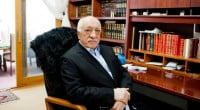Globalization and the Hizmet movement

Date posted: February 27, 2012
Ziya Meral*, Sunday February 26, 2012
Ongoing discussions in the popular media and scaremongering conspiracy theories about the Hizmet — also known as the Gülen movement — reflect two major intellectual failures.
The first of these is the common hermeneutic fallacy of not being aware and critical of the assumptions one starts with when interpreting reality. Thanks to 80 years of state-fuelled paranoia about anything to do with religion and civil society, the reality of an Islam-inspired civil society movement is automatically perceived as being a threat to our nation. Even the most banal and normal facts are seen as further proof for conspiracy theories.
The second major intellectual failure is the inability to realize the Hizmet movement is no more than a simple, local, faith-based movement with a particular geo-political aim. With substantial activities in more than 100 countries, the Hizmet movement cannot be understood solely as an ongoing, man-made crisis of religion versus laïcité in Turkey. This points to one of the most important but never analyzed aspects of the Hizmet; its globalizing power. Thus far, the global reality of the movement has only been discussed, once again, vis-á-vis Turkey. International efforts by the movement were either seen in terms of the Turkish “flag carrier” role played by the movement all around the world, or as attempts by the organization to establish itself in influential international centers in order to strengthen its power in Turkey.
These conversations only see the globalization of the movement as the movement reaching out to the world from and for Turkey. What has not been analyzed properly is what effects breaking out of the limited Turkish context has on the movement itself and, in return, for Turkish society as a whole.
As individuals inspired by Gülen have traveled around the world forming entrepreneurial business and educational networks, they have not only taken the Turkish flag and the teachings of Gülen to the four corners of the globe, but the experience of the world gained in this process have profoundly shaped them.
It was in fact easy to speak about tolerance and respect for others when the movement was largely limited to the narrow social and political horizons of Turkey and Central Asian societies with similar demographic realities. But moving to Africa, Asia, Europe and America enabled the movement to see what it actually means to engage with people from other religions, languages and distinctly different cultures. The movement experienced life in countries that are not rigid nation states but genuine democracies that have multi-cultural religious, ethnic and political structures. These experiences have altered movement members’ social and political visions, in line with 21st century trends.
Just like everyone who travels abroad, members of the movement have indeed developed a renewed pride in their country and culture of origin. However, unlike nationalist and other faith-based movements limited to Turkey, they have been able to develop a much more balanced and cosmopolitan basis for their patriotism, thanks to the theological framework of the movement. In this process, many of them have come to see that in fact there is no global conspiracy against Turkey or Islam; that the world is actually enchanted with Turkish culture and that there is so much Turks and Muslims can do to contribute to the wellbeing of this old planet.
Given that the vast majority of teachers working in schools and businessmen working and investing around the world eventually return to or maintain strong ties with Turkey, they are now bringing back their global experiences to both those who follow Gülen’s teachings in Turkey and the general public through their influential media, business and education outlets.
Previously, the main gatekeepers of the Turkish experience of the world were academics who attended conferences or short-term studies abroad, columnists who found a basis for their delusions of self grandeur by staying in nice hotels in faraway lands and businessmen with heavy laptop bags and limited language skills copying the trade ideas set by a handful of visionary companies.
The Gülen movement, however, erodes the boundaries of elitism. Cohorts of Turkish society, who were previously not able to experience the world, are going beyond shallow short term trips and living in and deeply engaging with the world. They are also willingly bringing the world back to large sections of society, unlike the old elite who jealously limited their experiences to the small socio-economic and cultural circles they moved in.
In the final analysis, while paranoia about the “secret” aim of the movement to turn Turkey into an Islamic nation goes unchallenged as a “plain” truth, in reality, the Gülen movement is fast becoming one of the most influential vehicles of globalization in Turkey, carrying it into the deepest corners of Turkish social fabric.
*Ziya Meral is a London-based Turkish researcher and academic.
Source: Today’s Zaman http://www.todayszaman.com/newsDetail_getNewsById.action?load=detay&newsId=272577&link=272577
Tags: Hizmet (Gulen) movement |
























